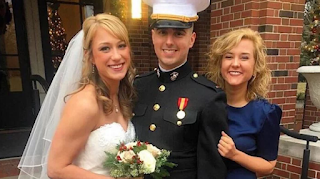Should U.S. Terrorists Be Put To Death?
As a nation, we have decided that terrorism that
results in loss of life should face the possibility of the death penalty. But
is this wise?
One can argue about the effectiveness of the death
penalty generally. But when it comes to terrorism, national security concerns
should be paramount. The execution of terrorists, especially minor operatives,
has effects that go beyond retribution or justice. The executions play right
into the hands of our adversaries. We turn criminals into martyrs, invite
retaliatory strikes and enhance the public relations and fund-raising
strategies of our enemies.
Moreover, dead terrorists don’t talk, while a live
terrorist can become an intelligence asset, doling out much- needed information.
Of course, imprisoning, rather than executing,
terrorists is not risk-free. Supporters could try to kidnap Americans, and
refuse to release them until their colleagues are released. Still, other
countries with far more experience in counterterrorism have concluded that
imprisoning terrorists is the better option in the long run.
For instance, the United Kingdom in 1973 debated
whether to repeal the death penalty in Northern Ireland. By a margin of nearly
three to one, the House of Commons decided that executing terrorists, whose
goal is often to martyr themselves, only increased violence and put soldiers
and police at greater risk.
In a highly charged political situation, it was
argued, the threat of death does not deter terrorism. On the contrary,
executing terrorists, the House of Commons decided, has the opposite effect: It
increases the incidence of terrorism.
The Israeli government unwisely creates martyrs with
what it calls preventive attacks, in which military or intelligence operatives
kill those suspected of terrorism. By contrast, judges in Israel have never
sentenced terrorists to death; capital punishment would be dangerous and
counterproductive.
Terrorism’s greatest weapon is popular support. We’ve
already seen this dynamic at work. After Mr. bin Laden’s 1998 embassy bombings,
the United States retaliated by striking a purported chemical weapons facility
in Sudan and a few crude camps in Afghanistan. The result? In the extremist
religious schools I visited in Pakistan after the attack, Mr. bin Laden had
become a hero. Parents named their children after him. Schools and businesses
were renamed in his honor.
Does anyone believe that executing his minions will
deter Mr. bin Laden from future terrorist attacks? The opposite is far more
likely: the United States could become more frequently targeted.
Our most powerful weapon against terrorists is our
commitment to the rule of law. We must use the courts to make clear that
terrorism is a criminal act, not jihad, not heroism, not holy war. And then, we
must not make martyrs out of murderers.
Tell your friends about This - SHARE NOW




Comments
Post a Comment